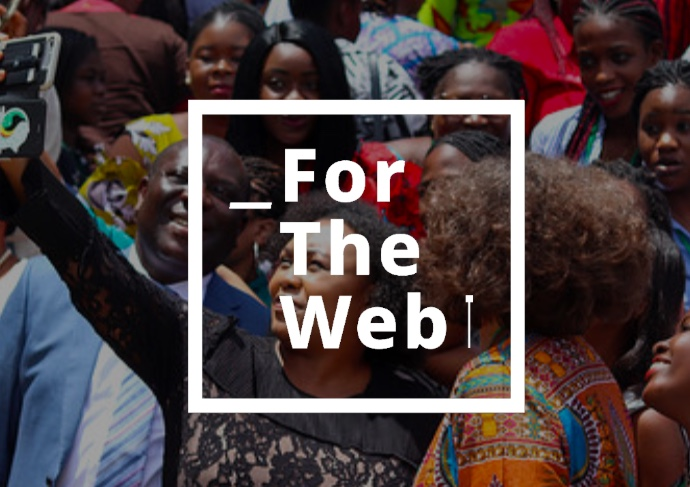Today, thirty years after my initial proposal for an information management system, half the world is online. This is a time to celebrate how far we've come, but also to reflect on how far we still have to go.
The Web has become a town square, a library, a doctor's office, a store, a school, a design studio, an office, a movie theater, a bank and more. Of course, with each new feature, each new website, the gap between those who are online and those who are not grows. This makes it all the more imperative to make the web accessible to everyone.
And while the Web has created opportunities, given a voice to marginalized groups and simplified our daily lives, it has also created opportunities for fraudsters, and given a voice to those who spread hatred and facilitate the commission of all sorts of crimes.
Against the backdrop of news reports about the misuse of the Web, it is understandable that many people are afraid and wonder whether the Web is really a force for good. But given how much the Web has changed in the last thirty years, it would be defeatist and unimaginative to assume that the Web as we know it cannot be improved in the next thirty years. If we give up on building a better Web today, it is not the Web that will have failed us. We will have failed the Web.
To solve any problem, you have to describe and understand it clearly. I see roughly three sources of dysfunction affecting the Web today:
- Deliberate and malicious intent, such as hacking and state-sponsored attacks, criminal behavior, and online harassment.
- A system design that creates perverse incentives in which user value is sacrificed, such as ad-based revenue models that commercially reward click traps and viral propagation of misinformation.
- Unintended negative consequences of benevolent design, such as an indignant and divergent tone, and the quality of online discourse.
We cannot simply hold a government, a social network, or the human mind responsible. Simplistic narratives risk draining our energy as we chase the symptoms of these problems instead of focusing on their root causes. To do the right thing, we will need to come together as a global web community.
At crucial moments, generations before us have mobilized to work together for a better future. With the Universal Declaration of Human Rights, diverse groups of people were able to agree on essential principles. With the Law of the Sea and the Space Treaty, we have preserved new frontiers for the common good. Today, too, as the Web reshapes our world, we have a responsibility to ensure that it is recognized as a fundamental right and built for the public good. That's why the Web Foundation is working with governments, businesses, and citizens to create a new Contract for the Web.
This contract was launched in Lisbon at the Web Summit, bringing together a group of people who believe that we need to establish clear norms, laws and standards that underpin the Web. Those who support it subscribe to its starting principles and together develop specific commitments in each area. No group should work alone, and any contribution will be appreciated. Governments, businesses, and citizens are all contributing, and our goal is to achieve a result within this year.
Governments must translate laws and regulations into the digital age. They must ensure that markets remain competitive, innovative and open. They have a responsibility to protect the rights and freedoms of people online. We need open web champions in government - public servants and elected officials who will take action when private sector interests threaten the public good and defend the open web.
Companies must do more to ensure that the pursuit of short-term profit does not come at the expense of human rights, democracy, scientific fact or public safety. Platforms and products must be designed with respect for privacy, diversity and security. This year, many in the technology sector have taken a stand to call for better business practices. We need to encourage this spirit.
Most importantly, citizens must hold corporations and governments accountable for their commitments and demand that they respect the Web as a global community with citizens at its core. If we don't elect politicians who champion a free and open web, if we don't do our part to foster constructive and healthy online conversations, if we continue to give consent without demanding that our data rights be respected, we abdicate our responsibility to put these issues on the agenda of our governments.
The fight for the Web is one of the most important causes of our time. Today, half the world is online. It is more urgent than ever to ensure that the other half is not left behind and that everyone contributes to a Web that fosters equality, opportunity and creativity.
The web contract should not be a list of quick fixes, but a process that marks a shift in the way we understand our relationship with our online community. It must be clear enough to serve as a guide for the way forward, but flexible enough to adapt to the rapid pace of technological change. It is our transition from digital adolescence to a more mature, responsible, and inclusive future.
The Web belongs to everyone, and we collectively hold the power to change it. It won't be easy. But with a little dreaming and a lot of work, we can create the Web we want.
Sir Tim Berners Lee
Référence :





